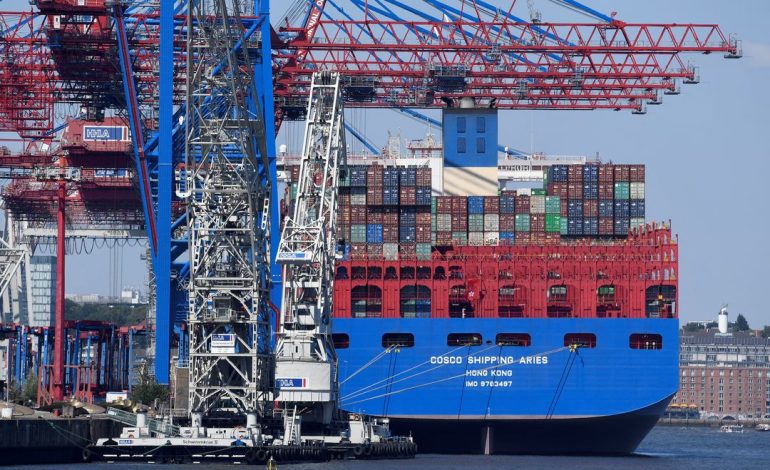
Hamburg’s China Fudge Adds Another Notch to Xi’s Belt
By Matthew Brooker
October 27, 2022
The German government’s agreement to sell a stake of less than 25% in one of Hamburg’s port terminals to a state-owned Chinese company is a face-saving compromise that enables Chancellor Olaf Scholz to travel to Beijing bearing at least one gift next week. The deal signals openness to investment from the nation’s biggest trading partner while capping its influence. What’s remarkable is that handing over even a measure of control of such strategic infrastructure was ever on the table to begin with.
After the Ukraine invasion and the cutting of the Russian gas pipeline to Europe, one might think that German officials would have lost their enthusiasm for economic dependence on unpredictable autocratic regimes. Not so for Scholz, at least. His support for the sale of a 35% stake to Cosco Shipping Holdings Co. put him at odds with six members of his own cabinet — including ministers in charge of the economy, foreign affairs, finance, transport and defense — as well as the security services. The investment is a qualified win for Beijing, adding another node to the expanding global network of ports and other infrastructure interests known as the Belt and Road Initiative, a signature project for Chinese leader Xi Jinping.


